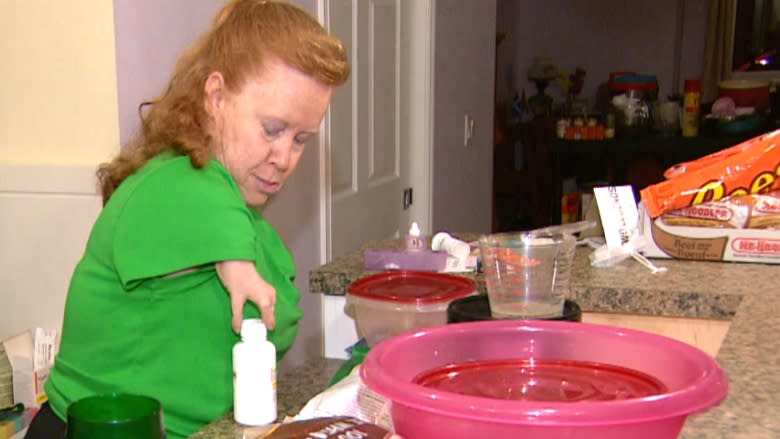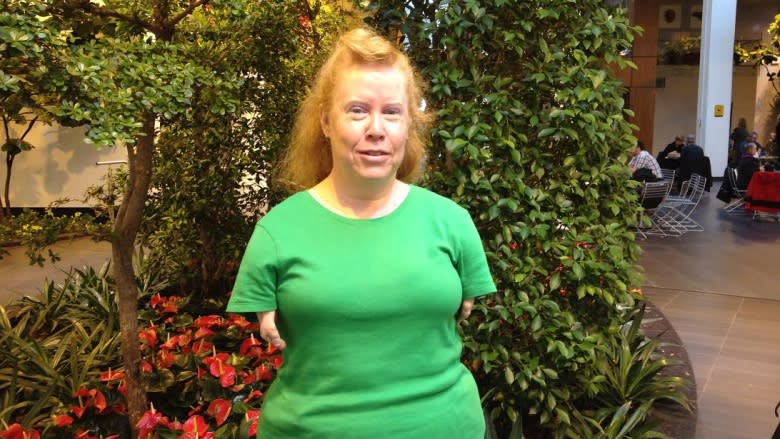Thalidomide victim calls on Canadian government for compensation
A Calgary woman born with a thalidomide-caused birth defect says thalidomide victims deserve yearly compensation from the federal government.
- CBC ARCHIVES | Government withholds warnings about thalidomide
Thalidomide was prescribed to expectant mothers in the 1960s to treat morning sickness.
But instead it caused thousands of babies around the world, including roughly 100 in Canada, to be born with severe birth defects.
Marie Olney's mother took thalidomide, which caused her to be born with a condition called phoocomelia.
Her arms are only 15-centimetres long and each has only three fingers.
“The disabilities we have were caused as a direct result of a decision by Health Canada to approve the drug without further testing,” she said.
Olney says preparing meals is difficult and shovelling the walk is impossible.
"On a daily basis there are many things I have to do using my legs, my feet, my mouth, my chin,” she said. "What I'm garnering from my work is a lot less because of all the money I'm having to pay out for these services."
Canada has 95 survivors
The Thalidomide Victims Association of Canada is calling on the federal government to provide $100,000 a year to each of Canada's 95 thalidomide survivors.
"Many of us still rely on our parents, our friends. We can't live like that anymore,” said Mercedes Benegbi, the association’s executive director. "Without funding from the federal government, we are living in a state of never-ending crisis — one that is not only physical, but also financial and emotional."
According to the association, there are eight Canadian-born survivors living in Alberta, as well as one who was born in Germany.
Other countries already provide yearly support to thalidomide victims. The federal NDP has tabled a motion calling on Ottawa to follow suit.
"I am really, really fervently hoping that all members of the House will come together on this issue," said NDP MP Libby Davies.
Federal Health Minister Rona Ambrose said in the House of Commons Tuesday that she has reached out to the Thalidomide Victim's Association and is looking forward to meeting with them. She is also reviewing their proposal.
Olney said she is disheartened that the government has taken so long to step up.
"They promised in 1963 and, but for a very small compassionate amount in 1991, they've not delivered on that promise at all," said Olney. "It's money that we need to survive in dignity and to stay as independent for as long as we can."



